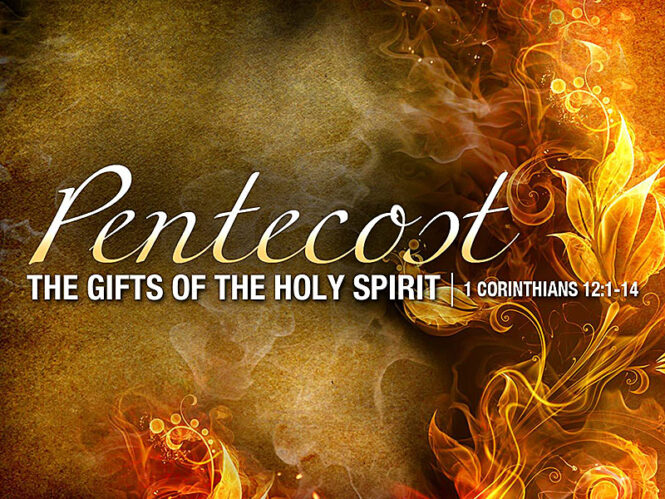
Over my 50+ years of serving Jesus, I’ve met more than a few sincere Christ-loving folks resistant to the charismatic experience. I’ve also run across more than a few flaky tongue-talkers who also zealously love our Savior yet cannot seem to get their act together, whether doctrinally or character-wise. Most of the former I’ve encountered holding that position do so in reaction to the latter. As a result, many non-charismatics resort to some fairly questionable Bible scholarship in their attempts to refute an experience which is clearly scriptural yet has been made unpalatable to them by Pentecostalism (the primary institutional expression of charismata).
The Perfect
One of the objections trotted out by many of them in their attempts to hold charismata at arm’s distance is their interpretation of a specific New Testament passage:
Love never fails. But whether there are prophecies, they will fail; whether there are tongues, they will cease; whether there is knowledge, it will vanish away. For we know in part and we prophesy in part. But when that which is perfect has come, then that which is in part will be done away.
1 Corinthians 13:8-10 (emphasis mine)
That word “perfect” in the last verse of that passage is the key to this argument. While I’m certainly no Greek scholar, this is how my lexicon defines the word:
- perfect (teleios)
-
- brought to its end, finished
- wanting nothing necessary to completeness
- perfect
- that which is perfect
Paul’s use of teleios in this verse seems a bit vague to our modern understanding. Indeed, it appears he is waxing poetical. In other words, 2000+ years later, we haven’t much of a clue what he actually had in mind when he employed the term. When brought into our debate on charismata, the burning question is this:
Is “the perfect” a person or an event?
A Person
We tongue-talkers believe it refers to the Person of Jesus Himself. When He physically shows up on this planet for the second and final time, we Christ-followers will be perfected in that moment and thereafter possess complete and flawless understanding of all things. Thereafter, all tongues, prophesy, and earthly knowledge would be rendered superfluous and obsolete.
An Event
Most cessationists instead claim teleios refers to a past event, specifically the closing of the canon of Scripture. In other words, when the Council of Nicæa (circa 325AD) once and for all defined the list of books belonging in the Old and New Testaments (aka the received texts) while rejecting apocryphal writings, the charismatic gifts somehow evaporated into thin air. In other words, God’s Word itself was “brought to its end, finished, wanting nothing necessary to completeness.”
Interestingly, that timeline is completely incompatible with another of their classic objections, the one claiming charismata disappeared from the earth when the Apostle John died of old age. Since these two events occurred roughly 200 years apart from on another, it cannot possibly be both. So which is it, folks?
Be that as it may, we can safely draw 2 conclusions from 1 Corinthians 13:8-10:
- When Paul wrote this letter to a bunch of wild and crazy Christ-followers in the city of Corinth, he knew he was speaking ex officio by the Holy Spirit, imparting divinely inspired instructions and commands. That being said, I believe a canon of Scriptures outside the Old Testament was not even remotely close to being on his radar, therefore the likelihood of him referring to a future New Testament canon in this passage is virtually nil. Whether that is true or not, there is no direct scriptural support for the concept.
- If only a few believers ever spoke in tongues and prophesied during modern times, they could be potentially written off as either demon possessed or otherwise spiritually deceived by Satan. In other words, if I was the only believer on the planet who spoke in tongues (and I do so!), I could be relegated to being a spiritual victim requiring deliverance. If I belonged to some insignificant minority who spoke in tongues, we could be written off as a cult.
However, literally hundreds of thousands — indeed possibly millions — of born-from-above charismatic Christ-followers are now living on this planet, speaking in tongues and prophesying, as I write this. Point of fact: the fastest-growing segment of the Church are charismatics — and has been for many years, I might add! — primarily in the Majority World where they haven’t had Minority-World theologians “educating” them out of what is plainly written in the Scriptures. The prospect of that many sincere believers being demonized is completely ludicrous on its face, a mathematical probability approaching zero.
Ergo, tongues and prophesy have indeed not ceased, therefore teleios cannot rationally be defined as the closing of the scriptural canon. This same fact also provides empirical proof that tongues did not die out with the Apostle John.
Knowledge
Cessassionists jump all over the phrases describing the end of prophesy and tongues in this passage like white on rice. What they neatly blow past as if it wasn’t there is the third item on the list: “whether there is knowledge, it will vanish away.”
So the question begging an answer is this: if tongues and prophesy have passed away because “the perfect” is indeed a closed canon, why do we still have knowledge in the earth? Where is the line of demarcation making tongues and prophesy eligible for elimination while leaving knowledge intact?
Fascinatingly, the last time I checked, we still know stuff. In fact, this entire discussion is about what we think we know about the Scriptures. And we haven’t even touched on the pesky truth that human knowledge is multiplying by the second. Indeed, there is an entire branch of philosophy devoted to human knowledge called epistemology.
In Summary
The exercise we just went through is called reductio ab absurdum which is philosophy-speak for “reduced to absurdity.” Whenever someone makes a truth claim, one of the ways to analyze its validity is to take that claim as well as its underlying assumptions to their logical conclusion and see if they hold water.
As you can see, their claim has more holes than a colander.
Finally, if you don’t want to speak in tongues, well and good. That is indeed your choice to make and you certainly don’t have to justify that choice to any other human being — least of all me! Rest assured, I’ll be the last person to pass judgment on you for making it. Charismata is not an essential doctrine of the faith, and no Christ-follower is allowed to separate themselves from other members of Christ’s Body over disagreements in either peripheral doctrines or traditions.
But, please, at least get your hermeneutics on this topic straight and own it, rather than wresting the Scriptures out of their context to give you an excuse.
Thanks for reading!

